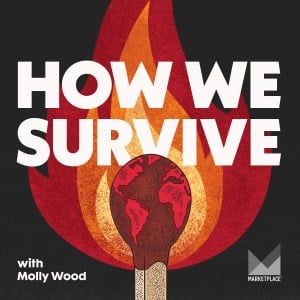
How We Survive
Minnesota Public Radio
The Colorado River feeds us and powers our lives, irrigating millions of acres of farmland and generating billions of kilowatt-hours in hydroelectric power. Forty million people get drinking water from the Colorado River. Cities from Denver to Los Angeles couldn’t exist without it. It supports 30 Tribal Nations.
But we’re using more water than the river has to give. The Colorado River has already lost trillions of gallons to rising temperatures over the last two decades. Meanwhile, rampant growth and water-intensive farming have depleted groundwater supplies. This means Western states must fundamentally rethink how water is divided up and used. In the latest season of “How We Survive,” we unpack the water crisis in the American West and investigate the solutions that could help us survive.
Location:
United States
Description:
The Colorado River feeds us and powers our lives, irrigating millions of acres of farmland and generating billions of kilowatt-hours in hydroelectric power. Forty million people get drinking water from the Colorado River. Cities from Denver to Los Angeles couldn’t exist without it. It supports 30 Tribal Nations. But we’re using more water than the river has to give. The Colorado River has already lost trillions of gallons to rising temperatures over the last two decades. Meanwhile, rampant growth and water-intensive farming have depleted groundwater supplies. This means Western states must fundamentally rethink how water is divided up and used. In the latest season of “How We Survive,” we unpack the water crisis in the American West and investigate the solutions that could help us survive.
Language:
English
Burning Questions: How to fight off climate dread
Duration:00:14:58
Burning Questions: How can I make my home climate friendly?
Duration:00:15:48
Burning Questions: How can I eat for the planet (without getting stressed out)?
Duration:00:15:08
Burning Questions: Where Should I Live?
Duration:00:14:59
Burning Questions: What’s the deal with 1.5 degrees?
Duration:00:10:43
“Burning Questions” is back!
Duration:00:02:26
The Worth of Water
Duration:00:51:02
Send us your climate questions!
Duration:00:00:42
Introducing: Ripple (bonus episode)
Duration:00:56:08
Is composting really doing anything? (Bonus episode from “The Anti-Dread Climate Podcast”)
Duration:00:11:14
A thanks and a note from Amy
Duration:00:01:22
Rights of Rivers
Duration:00:32:05
Water, water, everywhere
Duration:00:25:18
Betting on Conservation
Duration:00:28:37
The Price of Paradise
Duration:00:34:23
Groundwater Wars
Duration:00:33:38
Rewriting the Rules
Duration:00:35:14
Stolen River
Duration:00:32:13
The $80 Million Acre
Duration:00:32:39
Introducing “How We Survive: The Worth of Water”
Duration:00:03:22